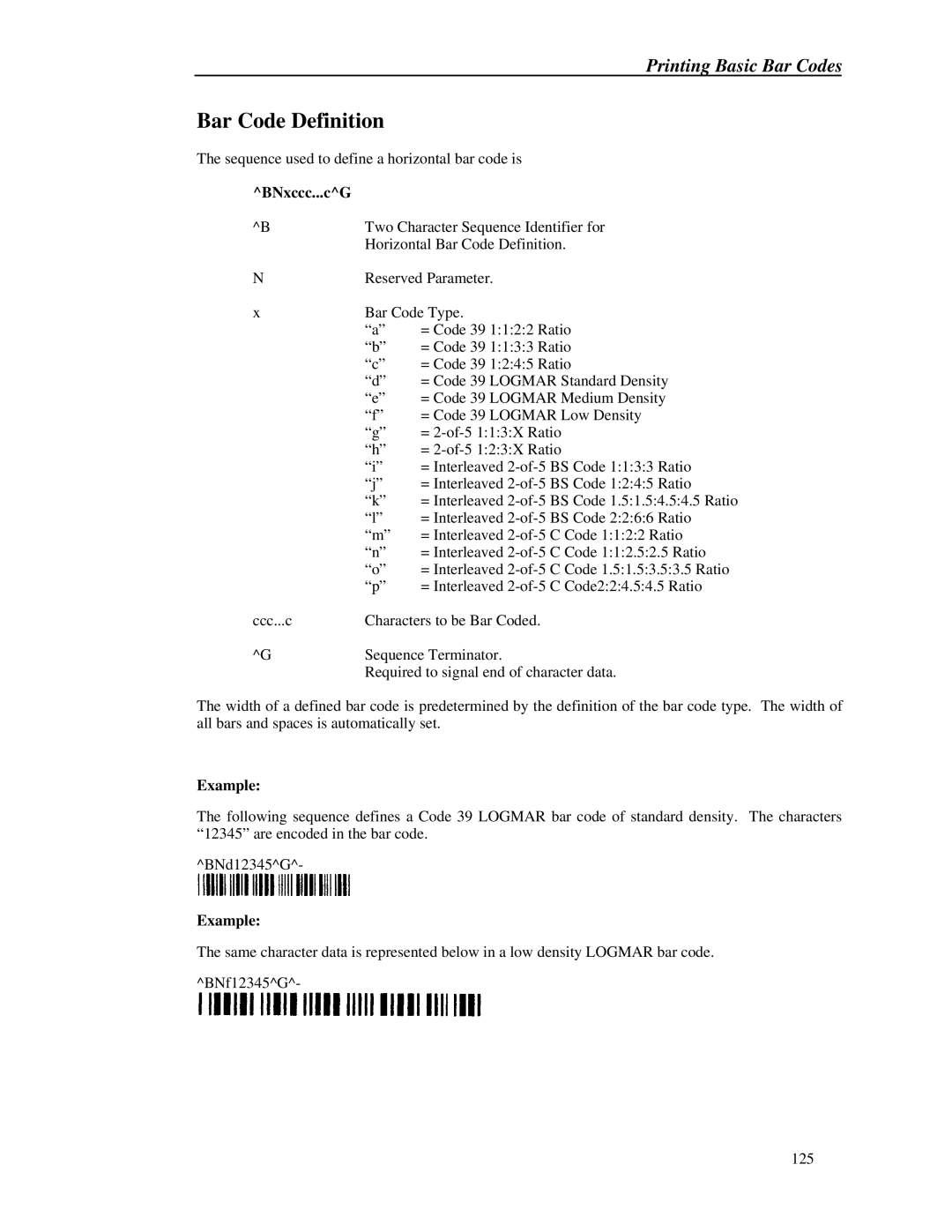
Printing Basic Bar Codes
Bar Code Definition
The sequence used to define a horizontal bar code is
^BNxccc... | c^G |
|
^B | Two Character Sequence Identifier for | |
| Horizontal Bar Code Definition. | |
N | Reserved Parameter. | |
x | Bar Code Type. | |
| “a” | = Code 39 1:1:2:2 Ratio |
| “b” | = Code 39 1:1:3:3 Ratio |
| “c” | = Code 39 1:2:4:5 Ratio |
| “d” | = Code 39 LOGMAR Standard Density |
| “e” | = Code 39 LOGMAR Medium Density |
| “f” | = Code 39 LOGMAR Low Density |
| “g” | = |
| “h” | = |
| “i” | = Interleaved |
| “j” | = Interleaved |
| “k” | = Interleaved |
| “l” | = Interleaved |
| “m” | = Interleaved |
| “n” | = Interleaved |
| “o” | = Interleaved |
| “p” | = Interleaved |
ccc...c | Characters to be Bar Coded. | |
^G | Sequence Terminator. | |
| Required to signal end of character data. | |
The width of a defined bar code is predetermined by the definition of the bar code type. The width of all bars and spaces is automatically set.
Example:
The following sequence defines a Code 39 LOGMAR bar code of standard density. The characters “12345” are encoded in the bar code.
^BNd12345^G^-
Example:
The same character data is represented below in a low density LOGMAR bar code.
^BNf12345^G^-
125
